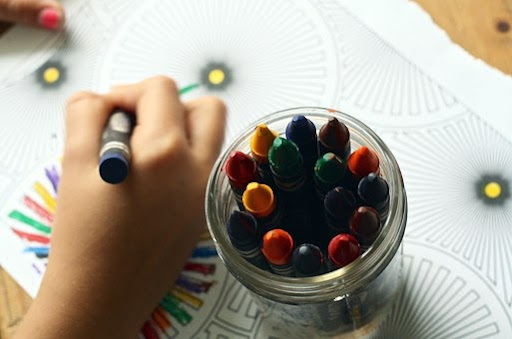Have you ever wondered what to do with your kids on a slow weekend when there’s nothing else going on? You could turn them loose on gaming devices and let them play away the hours, or look the other way while they text the latest gossip to school friends, exchange snapshots on Instagram, or head over to Facebook so everyone knows what they had for lunch. It may keep them occupied, but they’re empty hours, time that could be better spent engaging in fun educational activities that support what they’re learning in school.
The ideal scenario would be to intermix educational activities with school-based learning so that key concepts are reinforced. Also bolstered is rote learning, which, as Oxford Learning explains, helps kids develop foundational knowledge and the ability to quickly recall facts.
If you’re not sure how to go about it or what constitutes an educational activity, consider the following ideas:
Storytime With Apps
Parents should always make time for storytime! Reading stories helps kids build their literacy skills, fuel their imagination, boost their creativity, and they’re just plain fun. Plus, when you read a story using an app like Unuhi, your child gets access to a bilingual feature, which can be a helpful tool for learning another language. It’s a good idea to use a screen protector for your iPad to keep your device safe from scratches and to keep text and pictures visible on the screen.
The Alphabet in Pictures
For this activity, your kids will need to know how to use a basic point-and-click camera or your smartphone, if no cameras are available. Tell them to take pictures of everything from A to Z, and write down every object they photograph. It’s a good exercise for strengthening vocabulary and word-object association skills and, hopefully, instill an interest in photography. Make a game of it with the promise of a special sweet treat for everyone who gets through the entire alphabet.
Physical Interaction
The more you can couple learning with physical activity, the more likely you are to engage a child’s interest, according to Parenting Science. It’s also a good way to let them burn off some pent-up energy. Young ones love to play games with balloons, so hang a piece of string or twine across the family room or basement for a game of balloon volleyball — the kids will be squealing with delight in no time.
There’s nothing quite like a good old-fashioned scavenger hunt, a great way to teach kids to follow instructions. They’ll also enjoy playing their own homemade musical instruments. Get out some wooden or plastic spoons and those old cooking pots and plastic beach buckets, and record your little ones as they rock out on their favorite tunes. (But be sure to keep the Ibuprofen handy!)
Geography
A surprising amount of people (adults included) lack knowledge of basic geography; don’t let that happen with your kids. Cut out pieces of colored paper in the shape of the seven continents, and using a smaller piece of paper, cut out the shape of an airplane. Then, place the names of each continent on a small piece of paper, put them in a large glass or bowl, have each kid pick a continent, and have them put the paper plane on the appropriate space.
Make Your Own Lava
If the kids think volcanoes are cool, they’d probably jump at a chance to make their own lava. For this one, all you need is a tall drinking glass or beaker, vegetable oil, water, some food coloring, and a couple teaspoons of salt. Fill the glass about three-quarters full of water, followed by several drops of food coloring (whatever color you like) and a quarter cup of vegetable oil. The oil will float to the top of the glass. Then, sprinkle two teaspoons of salt onto the oil to create colorful globs of “lava.”
Adding salt will keep the process going. It’s a pretty cool rudimentary chemistry experiment, one that teaches kids about the different properties of common substances. The oil floats, because it’s lighter than water. The salt is heavier, so it will sink into the water along with some oil, but when the salt dissolves, the oil it dragged down floats back to the top.
Despite a mild revulsion toward schoolwork, children actually enjoy learning new stuff, especially when it has a definite “cool” factor. You can stimulate their curiosity with easy yet educational activities that cost nearly nothing to put together. That’s a blessing on a lazy Saturday or Sunday when there isn’t much going on.
Courtesy of Pixabay
